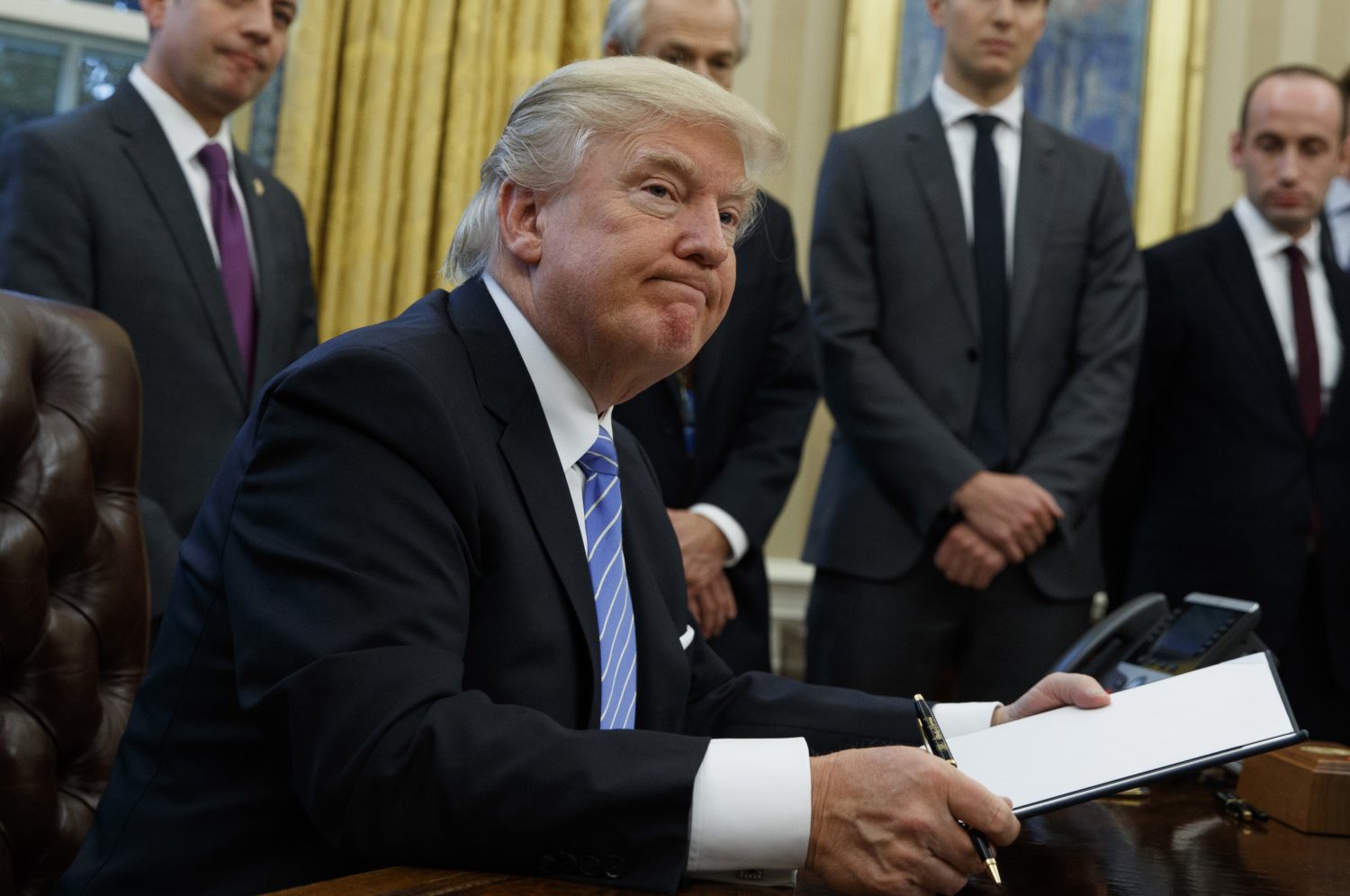President Donald J. Trump’s presidency, thus far, has been one of productivity with his authorization of eighteen executive orders in his first twelve days in office. That is still one less than the 19 signed by his predecessor, Barack Obama in 2009.
Regardless, his actions have been ones of heavy scrutiny from those on both sides of the aisle. The executive order signed Jan. 27, and perhaps receiving the most news, is titled “Protecting the Nation from Foreign Terrorist Entry into The United States.” The order upholds a Trump campaign promise to restrict predominantly Muslim immigrants and refugees from entering the United States.
According to Amany Ragab Hacking (J.D. ’97), an immigration attorney at Hacking Law Practice and a former faculty member at SLU Law, the “Muslim Ban” has begun to face many challenges from the legal community, “The ACLU (American Civil Liberties Union) was the first to file suit and was able to get a temporary restraining order on the ban, which just ended. That case will continue to be briefed and argued.”
On Friday, Feb. 3, a judge from the Federal District Court of Seattle, the Hon. James Robart, acted on a request from Washington and Minnesota by temporarily halting portions of the administration’s executive order: its limits on accepting refugees and its 90-day limits on the entry of people from Sudan, Somalia, Syria, Iraq, Yemen and Iran.
While the Supreme Court has said that Article II of the Constitution grants the president the ability to address immigration and foriegn affairs, the brief challenging the president’s order said, “While courts generally give more latitude to the political branches in the immigration context, this does not mean that the political branches can act with impunity. Federal courts have no more sacred role than protecting marginalized groups against irrational, discriminatory conduct.”
The university deeply values its multicultural students, faculty and staff. David Borgmeyer, PhD., director of the Center for International Studies, sees these members of SLU as important contributors to the university’s Mission. Dr. Borgmeyer said in an email to The University News, “The many different backgrounds and origins of students, faculty, and staff, including those of Muslims, are tremendously valuable in the campus community and have directly aided the university’s efforts to be a global university and provide a world-class education at SLU.” He went on to cite the importance of the newly established minor in Middle East Studies as a valuable step toward understanding this region of the world.
He noted, “Of course, not all Muslims are from the Middle East, but regardless, having perspectives from different cultures and faith traditions in class is a benefit to all SLU students – and to me as well.”
In an email to the Saint Louis University community, Fred Pestello, PhD., president of the University wrote, “I want it to be abundantly clear that Saint Louis University supports our students, faculty, physicians, and staff from the affected countries and all who are immigrants, refugees, and asylees or otherwise at risk; you are part of the SLU community. You are not alone. We stand with you. You make our University stronger.”
Despite Dr. Pestello’s affirmation of support for members of the University whose status may be in question, there is no clear answer on whether they will be allowed to stay in the country or not. Hacking commented that, “Anyone from the seven listed countries should be concerned about their status and should not travel outside of the country.”
Hacking, who immigrated to the United States from Egypt as a child, has worked tirelessly for immigrant rights with her husband James Hacking (A&S ’92; J.D. ’97) at their firm in Webster Groves, MO.
She went on to say, “While we don’t have family directly impacted by this ban, we do have many clients who are waiting for their fiancees, spouses, parents and children to come from these countries. Now, through no fault of their own, and after following all the rules and paying all the fees, those family members are now not able to come to America. It is sad and frustrating.”









